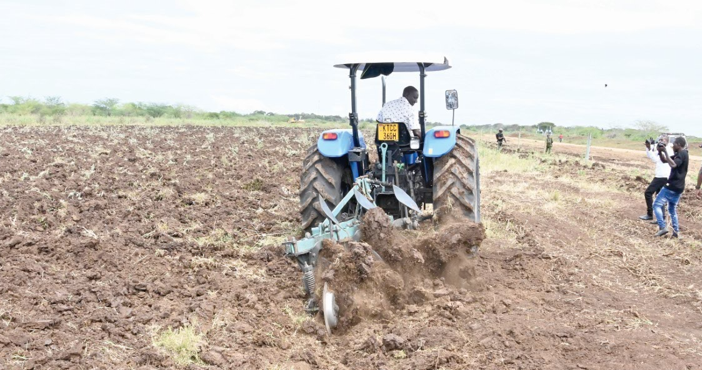Build capabilities for sustainable food systems
By Shadrack.Agaki, November 28, 2023World Bank’s Country Climate and Development Report for 2023 highlights a worrying outlook for Kenya’s inclusive growth and poverty reduction in the face of climate change.
The agricultural sector, constituting 21.2 per cent of the Gross Domestic Product (GDP), 25 per cent of exports, and 30 per cent of formal employment as of 2022, is particularly vulnerable to the adverse effects of climate change-related extreme weather events.
According to the Food and Agriculture Organization (FAO) 2023 report on the impact of disaster on agriculture and food security, global agricultural losses due to climate change-related disasters from 1991 to 2021 amounted to a staggering $3.8 trillion. The projections for Kenya under climate inaction indicate a potential increase of over 1.1 million people in poverty by 2050 and reduction in GDP ranging from 3.61 per cent to 7.25 per cent.
Effective strategies are imperative to redirect Kenya towards a climate-resilient trajectory. While there are commendable efforts such as the national tree planting event, more comprehensive measures are needed.
The International Labor Organization’s 2023 report on transformative change and SDG 8 underscores the importance of building collective capabilities and enhancing societal learning to achieve global agenda 2030. Collective capabilities, crucial for shaping economic transformation are found within social groups such as enterprises, local communities, workers, employers, professional networks or societies.
These capabilities, embedded in occupational networks, institutions, routines and cultural values, empower social groups to innovate, adopt new technologies, and establish consensus on common goals.
To develop new collective capabilities and enhance societal learning, the significance of psychological and social representation approaches in climate change framing and communication cannot be overstated.
The construction and circulation of climate change knowledge significantly influence public responses. Effective climate action should be tailored to resonate with people, environments, and values, acknowledging diverse circumstances and comparative advantages.
Given Kenya’s diverse cultural and agro-ecological zones, it is essential to frame and target climate action and activities to specific microclimates. Understanding how climate change contributes to challenges such as droughts, floods and rising temperatures, in different regions is crucial. For instance, how climate related challenges impact pastoralist communities and how climate change solutions are communicated will differ from that of farmers in Western Kenya.
It is instructive to note that the severity and frequency of climate-related disasters have increased over the years, with approximately 400 disasters occurring each year, emphasizing the need for targeted and region-specific climate action.
Considering the significant global economic losses of approximately $123 billion annually in the agri-food sector due to climate-related disasters, urgent and concerted efforts are required to mobilize citizens toward building a resilient economy.
Models that take specific consideration of digital platforms and social media could be used in understanding and mobilising the youth.
Furthermore, a collaborative approach involving the public sector, private sector, and civil society is necessary for a holistic development.
Encouraging strategic climate policy dialogues, such as the Food System Transformation initiative by the Partnership for African Social and Governance Research, serves to raise awareness about climate change.
Lastly, there should be heightened efforts to develop a new vision through a collaborative approach, ensuring consensus on climate action for inclusive and sustainable development.
—The writer is a climate change and food system communication consultant
More Articles

